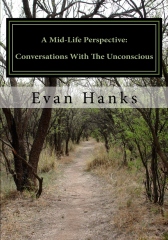“Consciousness as a spiritual principle has created a counter-pole to natural, instinctive animal function. Duality, dissociation, and repression have been born in the human psyche simultaneously with the birth of consciousness. This means… that consciousness in order to exist in its own right must, initially at least, be antagonistic to the unconscious… The innate and necessary stages of psychic development require a polarization of the opposites, conscious vs. unconscious, spirit vs. nature.” — Edward Edinger
Webster’s defines guilt as: “Remorseful awareness of having done something wrong or having failed to do something required or expected.” More than just a social mechanism, Jung saw it as a function of relationship which works in two directions.
Even as Webster’s relates it to awareness, so guilt has also the dual function of connecting to an inner reality. Such unconscious conflicts are catalysts for growth from birth; though at mid-life, an increasing psychic horizon reveals them (in the reflective mind, at least) to be religious problems.
Even if you were profoundly devoted to the collective spiritual assumptions you inherited, they were as much wishful fantasies as unconscious intuitions. Goethe said of conventional religion: “So much of hidden poison lies therein, you scarce can tell it from its medicine.”
Though, maybe you were irreligious — either way you’ll be confronted with the relative nature of personal/collective guilt. The modern transition to science and rational thought only brings into relief the grandiose philosophical ideas we’ve manufactured of this business of religion and ego; and guilt remains the spiritual compensation for the Original Sin of self-idolatry and our presumed dominion over nature.
Joseph Campbell illustrated the link between guilt and unconscious demands: instinct concentrated primitive energies for a hunt, for instance, through rituals. Their dual purpose also required their performance afterward. The instinct to kill was necessary for survival, but a natural regulating function was needed to balance it; guilt was the psychic check on blind aggression.
The ritual neutralized it. Nature takes only what it needs: the innate balancing function of life itself. The story of the Garden symbolized the unconscious guilt inherent in the conflict of opposites on the more conscious plane of a religious problem:
In, Ego and Archetype, Edinger wrote: “The myth of the fall expresses a pattern and a process… that one must go through in one form or another with every new increment of consciousness… being bitten by a snake… has the same meaning that the succumbing to the temptation of the serpent in the Garden of Eden had for Adam and Eve; namely, that an old state of affairs is being lost and a new conscious insight is being born.“
Edinger confirmed Campbell’s insight through the blood of Christ in the ritual of communion: it’s “… the covenant-sealing quality which binds man to God… it cleanses from sin… releases one from unconscious guilt. Also it is said to sanctify which… would suggest… the sacred or archetypal dimension into personal consciousness.“
But, what does that mean in the modern shift from irrational to rational? To the “new conscious insight being born” today? Erich Neumann wrote in his, Depth Psychology and a New Ethic:
“This split between the world of ethical values in the conscious mind and a value-negating, anti-ethical world in the unconscious which has to be suppressed or repressed generates guilt feelings… and accumulations of blocked energies in the unconscious. Naturally, these are now hostile to the conscious attitude, and when they finally burst their dams they are capable of transforming human history into an unprecedented orgy of destruction.“
The image of guilt reveals why there should be such a world lurking beneath conscious ideals. When the “polarization of opposites” reaches a tension that must be released (think war), its unchecked nature means the instinctual counter-pole has turned reason to its own demands. Much of our energy is spent trying to resolve the ideological projections which, without reflection, can no longer match the unconscious consequences of technology. Neumann:
“The guilt-feeling based on… the shadow is discharged… in the same way in both the individual and the collective… by the phenomenon of… projection. The shadow, which is in conflict with the acknowledged values, cannot be accepted as a negative part of one’s own psyche and is… transferred to the outside world and experienced as an outside object. It is combated, punished, and exterminated as the “alien out there” instead of being dealt with as “one’s own inner problem”.”
The old ethic (and the new scientific one, too; for the purposes of the old one have not been reflected), the shadow, the guilt, the repressed longing (the natural facts of instinct) are symbolized as a “pact with the Devil” — an image Goethe seized upon in Faust — foreshadowing our modern predicament. He described a consciousness on the threshold of a new insight:
“He asks of heaven every fairest star, And of the earth each highest zest, But all things near and all things far Cannot appease his deeply troubled breast.”
For an interesting look at guilt and the modern religious problem, read more here, or visit Amazon.

